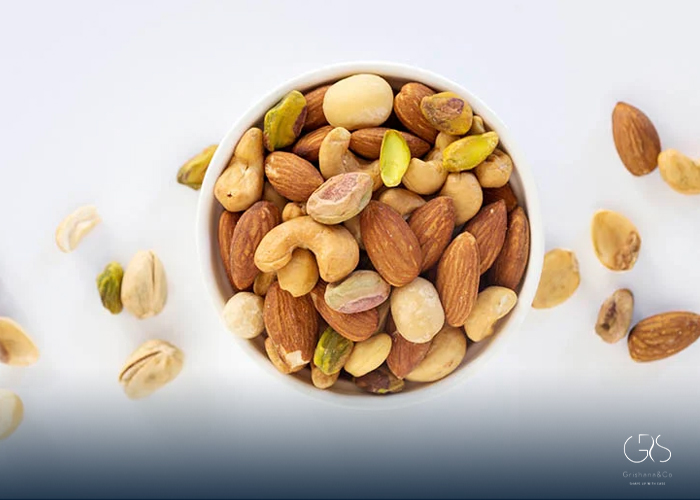Prostate cancer is pervasive among men globally and leads to substantial cancer-related fatalities. In 2021, the American Cancer Society anticipates roughly 248,530 new cases and 34,130 deaths in the United States. Given these concerning figures, it is crucial to consider Prostate Cancer Diet as a means of mitigating the risk of cancer progression.
Research has shown that following a plant-based diet may help reduce the risk of prostate cancer progression. According to a study published in the Journal of the American Medical Association in 2020, following a plant-based diet “may reduce the risk of prostate cancer progression among men with early-stage prostate cancer.” The authors of the study further suggest that “these data support counseling men with early-stage prostate cancer to incorporate plant-based foods and fish into their diets.
How Much May Following a Plant-Based Diet Reduce Prostate Cancer Progression?
Research indicates that following a plant-based diet may reduce the risk of prostate cancer progression quite significantly. A study published in the journal Cancer Prevention Research in 2015 found that men diagnosed with prostate cancer who followed a plant-based diet had an 11% lower risk of prostate cancer overall, and a 35% lower risk of advanced prostate cancer, compared to men following a standard Western diet. The study also found that plant-based diets may help lower the levels of prostate-specific antigen (PSA), which is used to monitor prostate cancer progression.
Another study published in the journal Urology in 2018 found that men who followed a plant-based diet for at least six months had a 40% lower serum PSA concentration than those who did not follow a plant-based diet. Serum PSA is a marker for prostate cancer progression, and its concentration is a predictor of future disease progression.
(I recommend that you read about the worst foods for prostate health.)
What’s Behind the Diet’s Possible Effect on Prostate Cancer?
Plant-based diets are high in fiber, vitamins, and minerals, and low in animal products such as meat and dairy. Research has suggested that the plant-based diet’s possible effects on prostate cancer may be attributed to these factors. For example, fiber-rich diets may help reduce the amount of testosterone and estrogen levels in the body. Testosterone is a hormone that promotes the growth of prostate cancer cells. Additionally, plant-based diets are rich in antioxidants, which are known to have anti-cancer properties.
Which Foods Show Benefit?
Several plant-based foods have been identified as showing potential benefits for reducing the risk of prostate cancer progression. These include:
- Fruits and Vegetables: These are rich in vitamins, minerals, and antioxidants that help reduce the risk of prostate cancer progression.

- Legumes: Legumes, such as beans, lentils, and chickpeas, are high in protein, fiber, and antioxidants.
- Whole Grains: Whole grains, such as quinoa, brown rice, and whole wheat, are high in fiber, vitamins, and minerals that are beneficial for overall health.
- Nuts and Seeds: Nuts and seeds, such as almonds, walnuts, and flaxseed, are rich in protein, healthy fats , fiber, and antioxidants.

- Fish: Although not a plant-based food, fish is often included in a plant-based diet and is a good source of omega-3 fatty acids, which have anti-inflammatory properties that may help reduce the risk of prostate cancer.

Next Steps for Research:
While research on the effects of plant-based diets on prostate cancer is promising, further research is needed to explore this relationship in greater detail. For example, research should investigate the optimal composition of different plant-based diets, as well as the ideal duration and adherence to such diets. Moreover, larger and more diverse studies are needed to understand how ethnicity, lifestyle, and other factors affect the relationship between plant-based diets and prostate cancer progression.
(To learn about Prostate Cancer Causes , please refer to this article)
Conclusion:
Prostate cancer is a major health concern for men worldwide, and research has suggested that incorporating plant-based foods into the diet may help reduce the risk of prostate cancer progression. By choosing a diet that is rich in fruits, vegetables, legumes, whole grains, nuts, seeds, and fish, men can help promote their overall health and reduce the risk of prostate cancer progression. While further research is needed, incorporating more plant-based foods into one’s diet is a simple and effective way to support overall health and reduce the risk of prostate cancer progression.
Sources
- American Cancer Society, Key Statistics for Prostate Cancer
- JAMA Network, Plant-Based Diets and Disease Progression in Men With Prostate Cancer
- National Library of Medicine, Association of plant-based diet index with prostate cancer risk













